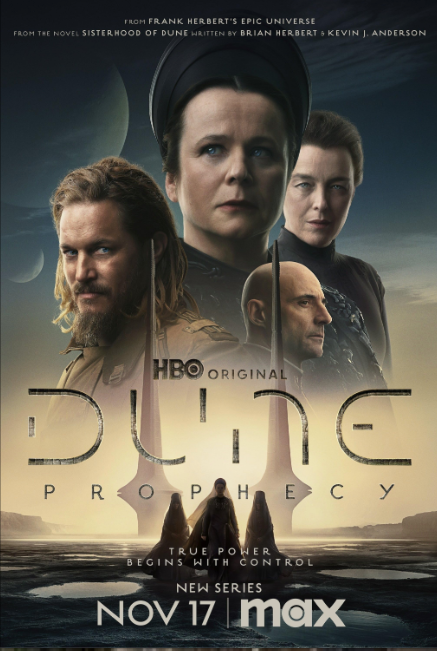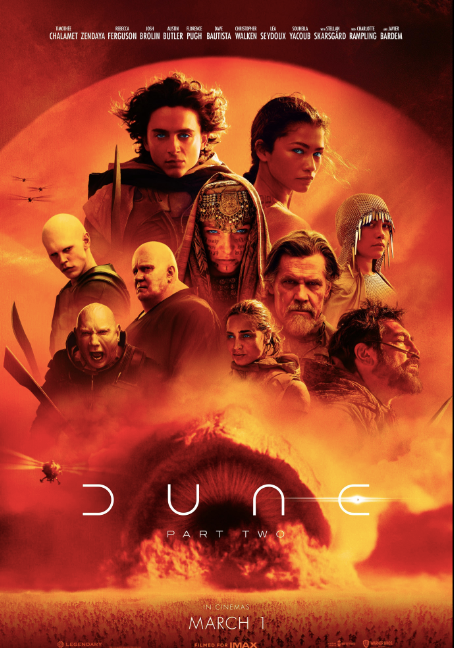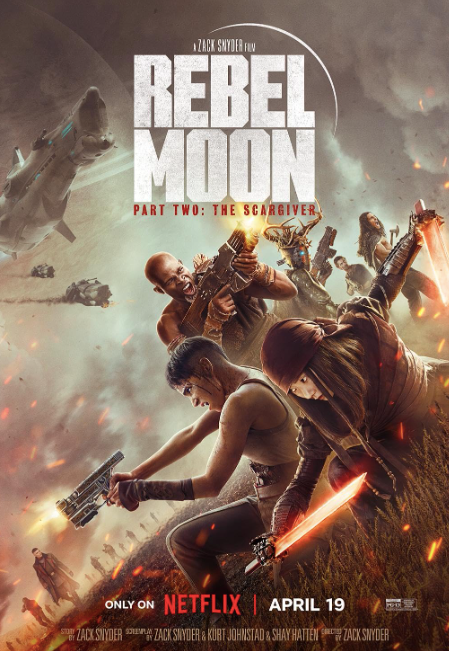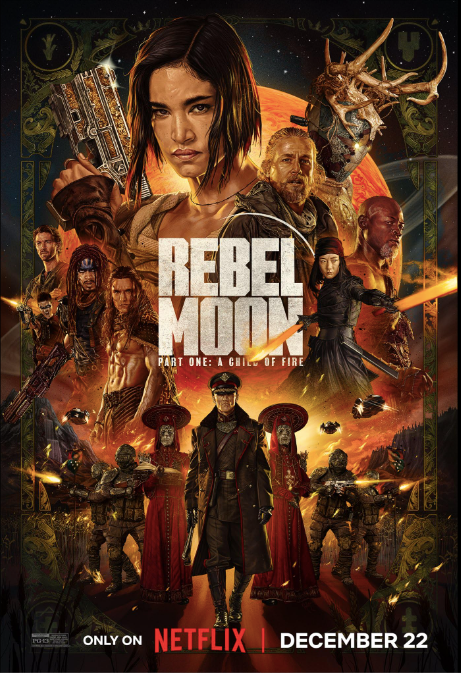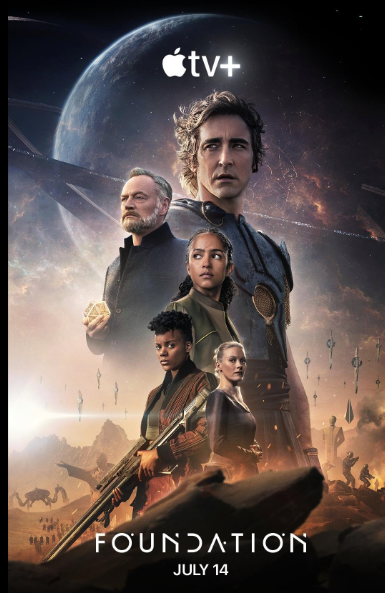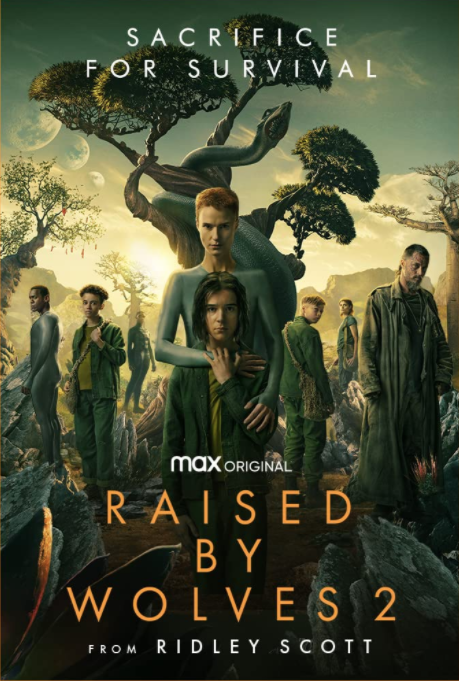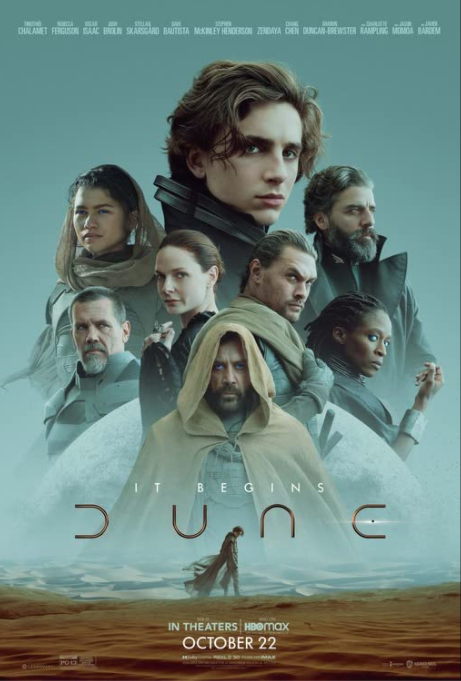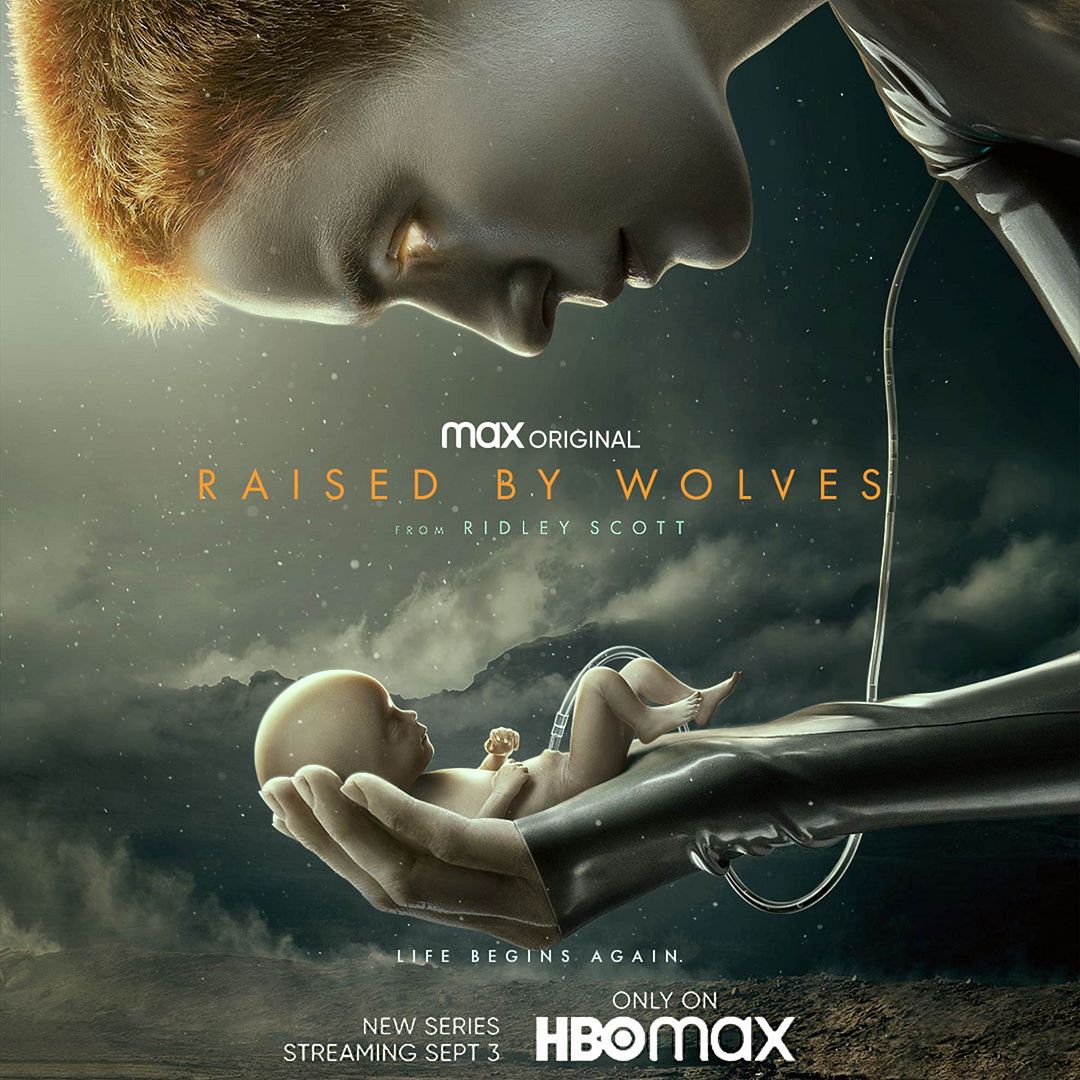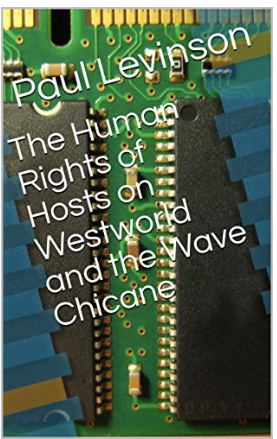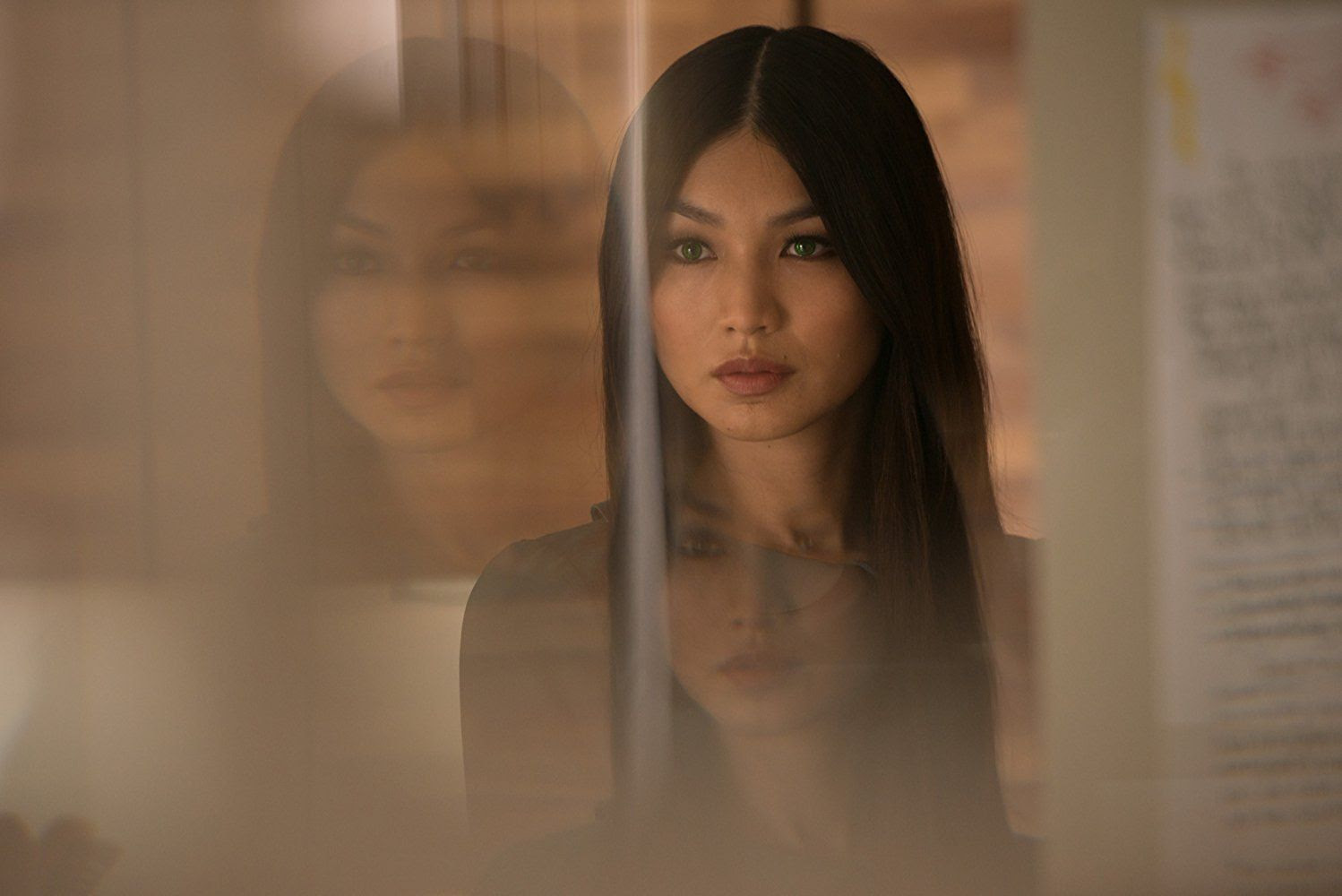The Invigoration of a
Philosophic Issue in Science Fiction:
How Laplace’s Demon Finds a Stage in the Foundation and Dune
Trilogies
by Paul Levinson
Note: An earlier version of this brief essay, then entitled
“Fantasy and Science Fiction Rooted in Fundamental Concerns,”
was first published in
Media & Methods
in 1979. I expanded and re- published it in 2009 on Google's Knol system, which was shut down a few months ago.
Most educated people acknowledge - grudgingly, or happily,
or somewhere in between - that science fiction is a very useful source of
information about science. So the
proposition that a work of science fiction can be valuable in helping to teach
children or adults about science is, I think, a rather easy proposition to
prove.
What I am going to be discussing in this essay is something
a little different, and it stems from my experience over decades of reading and
thinking about science fiction - which has convinced me that science fiction is
also a great source of material to teach people about philosophy. And actually this is a point of view I have
had for decades. I began thinking about
it when I first read Isaac Asimov’s Foundation trilogy - that would have
been in the late 1950s - and then in the late 1960s when I began reading Frank
Herbert’s Dune series. And so,
what I’ll be discussing in this essay is how those two great classic science fiction
series in particular can help us better understand a very profound philosophic
problem.
I would say that there are probably hundreds - even thousands
– of philosophic problems that science fiction can help us understand. But for the purposes of this essay, I am
going to confine my discussion to just one philosophic problem. It is a very
rich and deep philosophic problem and it concerns the role and nature of
knowledge in our lives. This is
something Plato wrote about in his discussion of the “Meno” paradox, in which
Plato said that in order to know something we have to already know it - how
could we know that what we have is knowledge if we did not already possess some
basis to make that judgment, that is, if we did not already have some knowledge
of that area? Philosophers have been
thinking about such questions about the role of past and present and future
knowledge for millennia, but here I want to focus on an issue that a
mathematician by the name of Pierre-Simon Laplace considered a few centuries
ago. He asked a hypothetical question:
if a super intellect, call it
Laplace’s Demon, had sufficient
knowledge of everything that was going on in the Universe at a particular time,
could it then predict everything that would happen afterwards? In other words, if we had sufficient
knowledge of initial conditions, could we then predict everything that would
happen thereafter? Laplace’s answer was yes.
Now I think most people would acknowledge that it is
impossible even in science fiction to have a situation in which we have
complete knowledge of everything presently in the Universe, or even in our
world. But in the two great series of
novels that I mentioned – Isaac Asimov’s Foundation series and Frank
Herbert’s Dune series – the proposition of what we can know and do in
the future, given some valid knowledge of that future in our present, is
given brilliant, riveting, and instructive exposition.
Let us start with the Foundation trilogy. First of
all, the Foundation trilogy comes from a series of shorter works of
fiction that were published in Astounding Magazine in the 1940s,
with the final piece published in 1950.
Asimov credited Astounding editor
John Campbell with encouraging him to develop the stories, including suggesting
important elements of the plot. The stories were collected into the Foundation
trilogy, published by Gnome Press in the early 1950s. The trilogy has been
reprinted many times, and Asimov later went beyond the original trilogy with
some additional novels in the 1980s. I
am going to confine myself in this essay to the original trilogy: Foundation,
Foundation and Empire, and Second Foundation.
In those stories, Asimov sets out a proposition: a
mathematician by the name of Hari Seldon is able to devise mathematical
equations which summarize the important events in human life and society that
are occurring at the time. And having
posited these “psychohistorical” equations, Asimov wants to investigate the
extent to which Seldon and his successors can predict the future on the basis
of these equations. What makes the story
wonderful fiction is it seems at first that the future can be
predicted. There are a series of developments
in which the evidence at the time, a hundred or more years after the creation
of the equations, seems to be going against what the equations are predicting -
but at the end of each of those stories it turns out that the equations put
people in just the right place at the right time, so Seldon’s original
equations did indeed predict the future, and predict it successfully. The equations are so good that they allow the
heroes of these stories, the First Foundation, to survive against overwhelming military
odds. As long as they are in the right
place, at the right time, as projected by Seldon’s original equations, nothing
can harm them.
But then things begin to go wrong. A mutation arises – “The Mule” – who, as a
result of being a mutation, has not been accounted for in Seldon’s
equations. (In his 1980s, novels, Asimov
suggested that The Mule might have been an android – I prefer the original
biological mutation genesis.) The Mule
is Asimov’s first indication that the future cannot be infallibly predicted. And the episodes involving The Mule make for
some of most exciting parts of the Foundation saga.
Fortunately for the good guys, it turns out that, at the
very beginning, Hari Seldon/Isaac Asimov set up a special group of people who
not only understood the import of the equations but were able to revise them as
time progressed. In fact, prior to the
appearance of The Mule, the First
Foundation leaders really understand very little of the equations. They just know that they have to get out of the
way of events in history to let them happen as the equations predict. But the second, more sophisticated group –
the Second Foundation – has a “meta”-position in the saga. They are, in effect,
Hari Seldon’s insurance policy, in case blindly following the equations does
not work out the way the equations predict – which is exactly what happened
with the unexpected appearance of The Mule.
And this, I think, brings home an extremely important point
in the philosophy of knowledge, and its value in predicting the future. The fact that human intervention is required,
even in a situation in which equations seem to predict what is going to happen
– human intervention to insure that those things happen – shows that there is
no such thing as perfectly predicting the future. Even accepting the premise that we could have
a mathematics so sophisticated that it could encompass all human activities and
therefore permit us to perfectly predict
the future – even with such a Laplace’s Demon realized - Asimov is saying in
his Foundation trilogy that there is still an irreducibly open-ended
quality to the future. Which means that
Laplace’s Demon is crucially less than a perfect prognosticator.
We might think of this as an open versus a closed system –
an open Universe versus a closed Universe. This kind of territory is addressed
not only in philosophy but in systems theory.
But in a philosophy classroom, if you want to teach students
to at least begin thinking about this particular kind of problem – if we
have sufficient knowledge can we predict the future? – there is no better
way than having them read the Foundation trilogy. Like all great fiction, it puts abstract
ideas into a setting that commands your emotional allegiance.
Now, Frank Herbert’s Dune trilogy – also started
under John Campbell’s tutelage, and published as a series of novels beginning
in the 1960s – is really a very different kind of story. There are no equations in that universe –
that is, no equations that enable people to predict the future. What moves events in Dune are people who have the power to see the future - in
particular, the hero of the original Dune trilogy, Paul Atreides, who
becomes Muad’dib, whose combination of genetic make-up and exposure to a
powerful spice, a certain kind of drug, gives him the capacity to see the
future. And so we once again have the
question: if someone has the ability to see the future – this time not
through devising and understanding of mathematical equations, but as the result
of some kind of metaphysical, drug-related, genetically-based conditions – can
that person be successful? Can he triumph over his enemies, right the wrongs in his
world, and find personal happiness and satisfaction?
And once again, the answer in the Dune trilogy is
similar to the answer in the Foundation trilogy, because at first
Muad’dib does well with his ability to predict the future. He is able to foresee
what his enemies may do and take appropriate actions to make sure those things
do not happen. But what then begins to
happen, inevitably, is he not only sees certain things in the future not to his
liking, but begins to see that if he tries to prevent those things from
happening he will cause other bad things to occur. And in the end, he is actually destroyed by
his ability to foresee the future. He loves a woman by the name of Chani, and
she is captured by one of the bad-guy groups, and they offer to give her back
to him, and he loves her very much but he can foresee in the future that if he
takes her back she in effect will be someone that he cannot rely on – she will
not be the person that he previously loved, even though she seems, for all
intents and purposes, to be that person.
And so Paul Muad’dib decides not to take Chani back – to let her die -
and as a result, he winds up tearing himself apart. He is caught between the
rock of his love for her and the hard place of his capacity to see the future.
He wants with all of his soul to take her back but he can foresee that she is
not going to be what she was. Neither
solution – taking her back or not taking her back – is acceptable. So he walks off into the desert, a broken
man. Another victim of the capacity to
have knowledge of the future. A capacity
which, in Dune, is almost a curse.
So what the Foundation saga does on a mass-societal
level, the Dune stories do in a personal dimension. But as for the philosophic question of what
value does knowledge of the future have? – once again, in the Dune
series, the answer provided is: it does not give you the ability to necessarily
succeed. Because whatever you might see
in the future can put you in an untenable situation in the present where there
is no way that you can succeed.
For people, then, who are interested in philosophic
questions – students, teachers, everyone -
I would recommend the Foundation and Dune
novels as vivid introductions to one of our most profound philosophic
problems. And they are more than
introductions. They are stages upon
which this problem is acted out, upon which the ironies and paradoxes of
predicting of the future are invested in dramatic characterizations which give
them a compelling, almost flesh-and-blood appeal.
We can read, with great profit, Plato and Laplace and other
philosophers on these and related subjects – which come under the headings of
epistemology and cosmology, the nature of the Universe, and to what extent can
it be determined. But the science
fictional setting gives us something unique.
As we come to identify with the characters and enjoy the stories, we
internalize the philosophic issues in a way that makes them a permanent part of
our thinking. I became a philosopher,
without realizing it, and wrestled with Laplace’s Demon the day that I first
started reading the
Foundation trilogy – when I was twelve years old.
And the trilogy has never left me.
See also
postcard from Isaac Asimov to me, 1979
podcast of this essay
